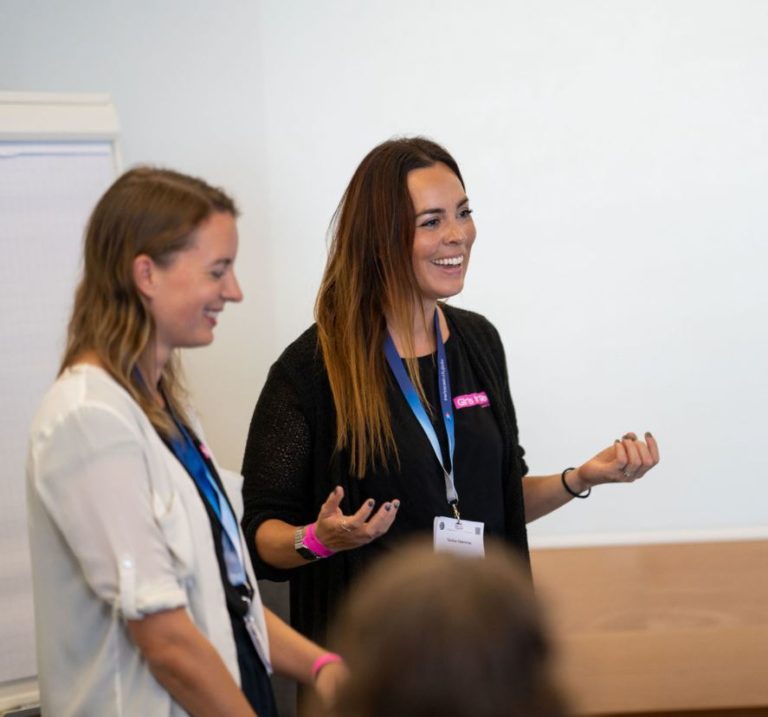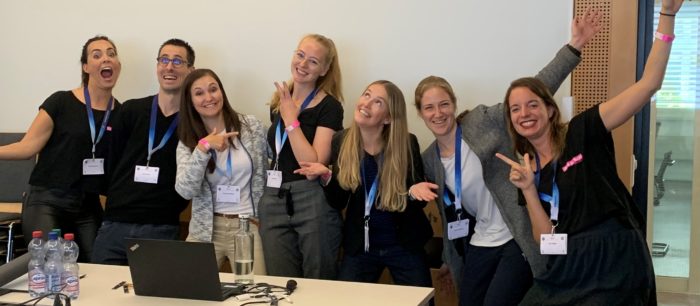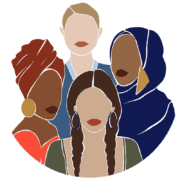At this year’s #wetechtogether conference, a day organized by TechFace where the female tech communities of Switzerland come together to raise awareness, network, and learn from each other, we were co-hosting an inspiring workshop together with McKinsey Switzerland about mentorship and sponsorship. The list below summarizes the most important findings from our joint workshop and the interesting discussions with attendees in the panel and breakout sessions.
#1 Everybody has and is a mentor/sponsor
We might not call them mentors or sponsors, but all of us have people in our life’s that support us with advice, give us new perspectives, that we look up to, or that open doors and opportunities for us. We are mentors for others and we have our own personal and professional mentors.
Don’t look too far to identify the mentors and sponsors in your life. They might just as well be a family member, a work colleague, or a good friend. More often than not, mentoring relationships establish themselves organically and don’t always need a label.
#2 Mentors vs. sponsors
There is a clear distinction between a mentor and a sponsor – both regarding the actions taken from both sides, but also on the purpose of the relationship. A mentor is a person who might be – but does not have to be – senior and more experienced than you and therefore can give you career advice and guidance.
A sponsor is one step further than this. It’s someone who is in a position to provide opportunities for you to grow – and also to fail in a safe environment. A sponsor is much more invested in your success and truly believes in you. They open doors for you & take risks in order for you to succeed.
#3 Barriers and how to overcome them
The most common barrier to seeking out others for advice or to establish a mentoring relationship is the fear of rejection. The person you look up to might also be someone who is extremely busy, so you don’t want to waste their time or come across as needy or annoying.
In general, it’s important to be bold and just reach out to people. Ask for a casual conversation, e.g. a catch-up over coffee or lunch, and then see where it goes from there. You don’t even need a specific topic or problem to discuss. It’s often beneficial to not have an agenda for a kick-off and see which topics arise and where the person feels confident to give advice.
Another misconception is that we don’t need or want advice from others, so mentoring feels counter-intuitive. Mentors however will not just give advice, but they are also a great way to challenge your beliefs and to reflect on your self-perception.
#4 Give & take
Both sides benefit from a mentoring relationship. A mentee obviously benefits from advice, experience, and strategies to deal with certain situations. A mentor or sponsor on the other hand gets a lot out of the relationship as well, e.g. direct feedback on their leadership skills.
Most people like to help others and enjoy seeing them grow – especially if they feel like they were able to contribute towards that growth. Rather than feeling bad about asking for help, you should perceive it as an opportunity for the other person to help you. You will often find that a potential mentor feels flattered and honored to help you out.

Most people like to help others and enjoy seeing them grow – especially if they know they contributed towards that growth.
#5 Find your perfect mentor
Mentoring programs often come with a matching step where you might be able to “choose” the preferred properties of your mentor, e.g. background, gender, age, etc. But how do you know whether these properties make for a good mentor?
What you should be looking out for in a potential mentor is a person who might have made similar experiences regarding the topic you’d like to get input and guidance for. It doesn’t matter whether the person is older or younger or has the same gender if that is unrelated to the experiences you are seeking advice for.
#6 Establish a mentoring relationship
Mentoring relationships – unless they’ve been formalized before the first meeting already, e.g. as part of a program – might take some time and effort to grow. There’s a phase of getting to know each other in the context of mentoring, where both sides need to evaluate each other and see if they want to commit to a more formalized relationship.
When you’ve hit it off with a mentor, it might be time to talk about formalizing the relationship. Set up a regular meeting, discuss a structure that works for both, and keep track of the progress. If you work with a professional coach, you also need to clarify money and the duration of the relationship. Formalizing the mentoring relationship can help to deepen the quality and intention of the mentorship, so you both get more out of it.
#7 Break it off if it doesn’t feel right
You’ve been matched with a mentor, but after the first meet up you realize you didn’t click? Don’t try to force it & listen to your gut feeling. A mentoring relationship where there’s a lack of trust or the topics offered aren’t quite what you want to focus on, is a waste of time for both parties involved.
There’s no shame in ending a mentorship. Actually, dragging it on even though it doesn’t really work, can be extremely frustrating and counterproductive. So, break it off if it doesn’t feel right for you, and ask for another match or look for another mentor or sponsor.
#8 Diversify your mentorship portfolio
Many people don’t have just one mentor that can help them with every topic. It’s well worth it to find a couple of mentors that might be able to help you with different problem statements. It’s also worth finding a few different mentors – e.g., on different stages in their careers, from different industries, etc. – that can give you different perspectives.
Diversifying your portfolio of mentors and sponsors will not only help you be more flexible and robust towards change but also to stay open and aware of different opinions and perspectives. When you are working towards leadership, this mindset & exercise might also help you be more empathetic and understand the people around you better.
A huge thanks to Claudia Galliker from McKinsey Switzerland and her team for shaping this inspiring workshop about mentorship and sponsorship together with us. We have also greatly enjoyed all the interesting questions and inputs from the audience and would like to thank all participants.
Did you miss this event? Sign up for our newsletter if you never want to miss out on our events!
Author: Lisa Stähli






